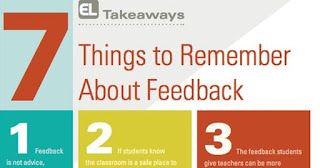What's Wrong With That?

Analyze. Higher-level thinking. Rigor. We hear it! We hear it again! Every article, training, and, yes, faculty meeting. AND YES, it is quite simple to get to. Just ask... What's Wrong With That? When students are given the "bad" examples, they often find it quite fun to pick it apart - to analyze. They enjoy taking the role of judge, of expert. They try to out-smart the teacher, the author, or another thinker. By asking what's wrong with that, teachers require students to think of the nuances in a concept or skill. Embedded in the question is the process of breaking something apart and comparing each part to the ideal. For example, take the reading teacher trying to teach students the complex skill of summarizing. She very quickly gets the students to analyze when she: Teaches the underlying concepts: problem, solution, main events... Prompts students to talk about these concepts and develop understanding. Gives one good example, so students can ref...


